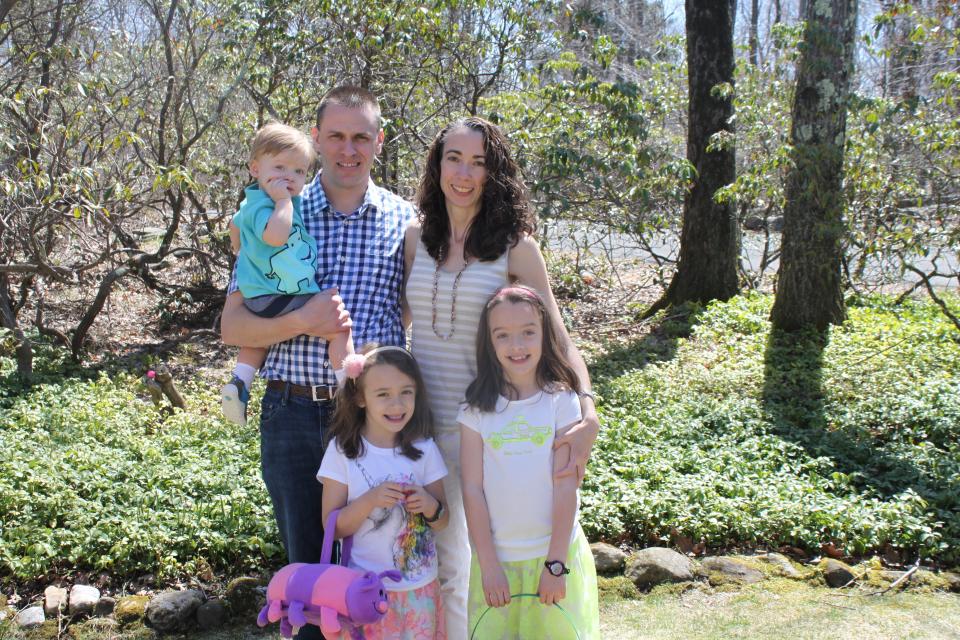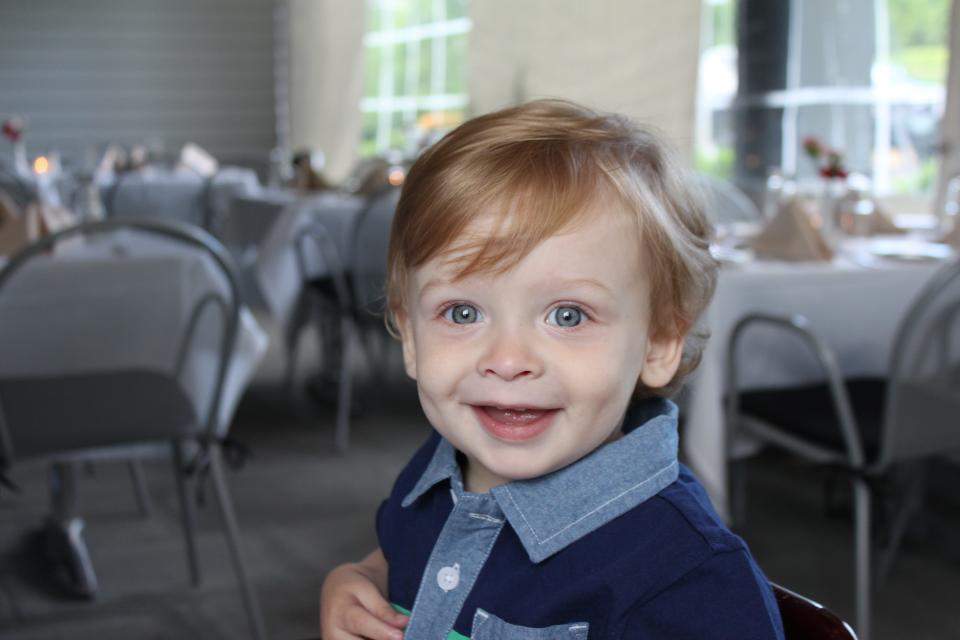My child died in a hot car. What his legacy has taught me about love and forgiveness.
The day I lost everything, I was sitting at a round table with a black Bible facing me, surrounded by a mass of doctors in white coats, nurses and police officers. I understood, as police officers walked me down the long hallway where the living lay to this small room in the back of the hospital, that my son was dead.
When I finally heard the words, "Your husband forgot to take him to day care and he passed away in the backseat of your car," my mind fell out, and with my hands covering my mouth I gasped, “Oh God.” I felt a moment of calm, where my entire life passed before my eyes.
When the doctor took me to my husband’s room, I did not recognize him. He’ll never be the same again. I’ve lost him, too, I thought, as he lay stripped down to his undershirt, khaki pants and brown socks, keening on the hospital bed.
Part of his soul was gone.
A momentary lapse in memory
Love is much more than an emotion – it is more integral than that. It caused me to intertwine my body around his, grab his fingers from his face and repeat for minutes on end, “I love you, I love you.”
What I did not know at the time was that my husband, Kyle, had experienced a momentary lapse in memory, turned right instead of left at the stop sign near our house and drove straight to work instead of taking our 15-month-old son, Benjamin, to day care, only realizing his mistake when he went to pick him up there in the evening.

Secretary-general of the U.N.: These five steps will help us kick our fossil fuel addiction and save the planet
There have been about 20 hot car deaths this summer, with the most recent tragedy occurring in Texas last week. I understand profoundly what these families are going through and feel pain for each death.
In the months and years to come, my family faced police and social services investigations and unending media attention. To avoid more trauma to our family from a public trial, my husband pleaded his case, received a suspended sentence for negligent homicide and maintained his freedom – leaving us alone with our grief to raise our daughters and rebuild our marriage.
But I want Ben's legacy to be so much more than his death. The deep love I've found for my husband, through forgiveness, is one piece of that.
More: Dozens of kids die in hot cars each year and their parents are rarely charged. This is why.
Finding forgiveness in unending grief
Years later, I would wonder what the calm had been that overcame me in those first moments and why I reacted so instinctively when I saw him. It was because I finally understood the meaning of compassion and imperfection. I had just become unbroken, because I had lived until that point completely broken, with only my husband by my side to love and shelter me.

After being diagnosed with a depressive illness in my 20s, months after getting married, I found myself with a lifetime of struggles, nights crying with Kyle there to hold me, while I told him I just needed him to love me, all of me. Over the years, we dug our way out of the darkness, but I often found myself at a deficit, making my way through law school and to a large New York law firm, always comparing myself with others who did not have the same limitations.
In the months following Ben’s death, I would struggle infinitely with anger toward my husband. I could not bring myself to understand how he could have forgotten our only son, and unilaterally take him away from me. The grief and longing was overwhelming. There would be many long nights and days of tears and frustration. It took me years of walking through my own healing and grief to realize that, in order to love another person in their imperfect state and forgive them for their mistakes, you must first love and accept yourself.
More from Opinion: It's up to us students to help make schools safer from gun violence
Remembering Ben, choosing love
I had lived my life in a complete state of silence and brokenness because I knew I was imperfect in with a mental illness. Life is centered around spiritual growth and understanding of others' faults and needs, enabling us to support others through their own personal journeys and to reach their goals in life.
The nurse in Kyle’s emergency department room told him to let me be there for him, in his state of emotional breakdown, as he would be there for me in the future. What the nurse had not known was that Kyle has already been there for me in my darkest days. I would come to realize that we were two soul partners, loving each other through our darkest hours and evolving as humans through it all.
Opinion alerts: Get columns from your favorite columnists + expert analysis on top issues, delivered straight to your device through the USA TODAY app. Don't have the app? Download it for free from your app store.

I’ve struggled to see God in the wake of our tragedy, but I finally realize God is forgiveness and God is love.
In Ben’s eyes, I often imagine what a better world would look like. It is one of compassion, empathy and love. One in which we support each other through the struggles we all face, so we can be a part of another’s journey to attain the highest version of themselves.
It's OK not to be OK: Erasing stigma of mental illness is a big step toward healing
Lindsey Rogers-Seitz is a private equity attorney at a leading international law firm. Outside the practice of law, she is a writer and advocate for mental health awareness. She lives with her husband, two daughters and therapy dog, Harley, in Morrisville, North Carolina.
You can read diverse opinions from our Board of Contributors and other writers on the Opinion front page, on Twitter @usatodayopinion and in our daily Opinion newsletter. To respond to a column, submit a comment to letters@usatoday.com.
This article originally appeared on USA TODAY: My son died in a hot car death. What I learned about love, forgiveness

